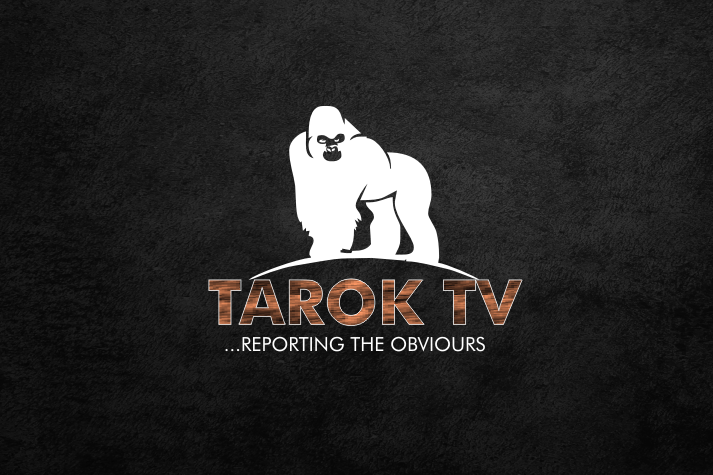The Gig Economy: Freelancing and Contracting in the USA
- Home /
- blog post
The gig economy, characterized by short-term, flexible jobs and freelance work, has rapidly gained prominence in the United States. As traditional employment structures evolve, an increasing number of individuals are choosing freelancing and contracting as a means of earning a living. In this exploration of the gig economy in the USA, we'll delve into its definition, the rise of freelancing platforms, benefits and challenges for workers, and the broader impact on the American workforce.
-
Defining the Gig Economy
The gig economy refers to a labor market characterized by short-term, flexible, and freelance jobs. Workers in the gig economy, often referred to as gig workers or freelancers, are typically independent contractors who engage in temporary or project-based work for multiple clients or platforms.
-
The Rise of Freelancing Platforms
-
Online Marketplaces: Platforms like Upwork, Fiverr, and Freelancer.com connect freelancers with clients seeking specific skills. These online marketplaces provide a diverse range of job opportunities, from writing and graphic design to programming and digital marketing.
-
Ride-sharing and Delivery Services: Companies like Uber, Lyft, and DoorDash represent the gig economy's expansion into transportation and food delivery. Drivers and couriers can choose their own schedules and work on a per-assignment basis.
-
Task-Based Platforms: TaskRabbit and Gigwalk enable individuals to complete specific tasks or errands for clients in their local area. This model allows for flexibility and the utilization of various skills.
-
-
Benefits of the Gig Economy for Workers
-
Flexibility: One of the primary attractions of the gig economy is the flexibility it offers. Gig workers can set their own schedules, choose the projects they take on, and often work from anywhere.
-
Diverse Income Streams: Freelancers have the opportunity to diversify their income by taking on multiple projects simultaneously or working across various platforms. This can provide financial stability and resilience.
-
Skill Development: Engaging in a variety of projects allows gig workers to continually develop and refine their skills. The diverse nature of the work can contribute to a broad skill set that is adaptable to changing market demands.
-
Work-Life Balance: The flexibility to create one's own schedule can contribute to a better work-life balance. Individuals can tailor their work hours to suit personal preferences and commitments.
-
-
Challenges and Considerations
-
Income Variability: Gig workers may experience income fluctuations due to the unpredictable nature of project availability and demand. This variability can present challenges in budgeting and financial planning.
-
Lack of Benefits: Independent contractors typically do not receive traditional employee benefits such as health insurance, retirement plans, or paid time off. Gig workers are responsible for managing their own benefits.
-
Job Insecurity: The absence of long-term employment contracts can create a sense of job insecurity for gig workers. The constant need to secure new projects or clients can be stressful.
-
Isolation: Remote freelancers may experience feelings of isolation due to the lack of in-person interaction with colleagues. Building a sense of community and networking becomes crucial for combating isolation.
-
-
Legal and Regulatory Landscape
-
Independent Contractor Classification: The classification of workers as independent contractors has been a subject of legal scrutiny. Misclassification can lead to legal issues, and both gig workers and companies must be aware of the criteria that define independent contractor status.
-
Labor Laws and Protections: The gig economy has prompted discussions about labor laws and protections. Striking a balance between the flexibility desired by gig workers and ensuring fair wages and worker rights remains a challenge.
-
-
The Gig Economy's Impact on Traditional Employment
-
Evolving Employer-Employee Relationships: The rise of the gig economy has led to a shift in the traditional employer-employee relationship. Companies are increasingly relying on a contingent workforce, allowing for agility and cost-effectiveness.
-
Rethinking Career Paths: The gig economy has prompted individuals to rethink traditional career paths. Freelancers may see their careers as a series of projects and collaborations rather than a linear climb up the corporate ladder.
-
Upskilling and Adaptability: Gig workers must continually upskill and adapt to changing market demands. The ability to pivot and acquire new skills becomes a crucial aspect of thriving in the gig economy.
-
-
Government and Policy Considerations
-
Labor Protections: Policymakers are grappling with the challenge of providing labor protections to gig workers while preserving the flexibility they value. Discussions around portable benefits and access to healthcare are ongoing.
-
Taxation and Reporting: The gig economy raises questions about tax compliance and reporting. As independent contractors, gig workers are responsible for managing their taxes, including self-employment taxes.
-
-
The Future of the Gig Economy
-
Technology Advancements: Continued advancements in technology, including artificial intelligence and automation, may impact the types of tasks suitable for gig work. Some jobs may become automated, while new opportunities may arise in emerging industries.
-
Balancing Flexibility and Stability: The future of the gig economy may involve finding a balance between the flexibility desired by workers and the need for stability and worker protections. This may involve innovative policy solutions and industry collaboration.
-
Collaborative Platforms: The gig economy is likely to see the rise of collaborative platforms that facilitate multi-disciplinary projects. These platforms may bring together freelancers with complementary skills to work on larger, more complex assignments.
-
-
Navigating the Gig Economy: Tips for Workers
-
Build a Strong Online Presence: Create a compelling online portfolio or profile showcasing your skills and experience. Utilize professional networking platforms to connect with potential clients.
-
Set Clear Contracts: Clearly define project scopes, deliverables, and payment terms in contracts. This helps prevent misunderstandings and ensures fair compensation for your work.
-
Diversify Income Streams: Explore opportunities on multiple platforms or take on different types of projects to diversify your income streams. This can provide stability during slow periods.
-
Invest in Continuous Learning: Stay updated on industry trends and invest in continuous learning. Acquiring new skills enhances your marketability and adaptability in a rapidly changing landscape.
-
Network and Collaborate: Actively network with other freelancers, attend industry events, and consider collaborative projects. Building a professional network can open doors to new opportunities and collaborations.
-
- Legal Protections and Advocacy
-
As the gig economy evolves, there is an increasing focus on legal protections for workers. Some jurisdictions have implemented or are exploring legislation to provide gig workers with certain rights, such as minimum wage guarantees, access to benefits, and protection against unfair treatment.
-
Advocacy groups and unions are actively working to raise awareness about the rights and challenges faced by gig workers. This includes efforts to lobby for legislative changes that enhance the working conditions and benefits available to those in the gig economy.
- Emergence of Co-Working Spaces
- The gig economy has given rise to the popularity of co-working spaces. These shared working environments offer freelancers and independent contractors a place to work, collaborate, and network. Co-working spaces provide an alternative to traditional offices, fostering a sense of community and reducing isolation.
- Health and Well-being Considerations
- Freelancers often lack access to employer-sponsored health insurance and other benefits. As a result, there is a growing emphasis on health and well-being considerations within the gig economy. Freelancers may need to explore options such as private health insurance, and policymakers are examining ways to enhance access to healthcare for gig workers.
- Global Implications
- The gig economy is not confined to national borders; it has global implications. Freelancers can collaborate with clients and companies from around the world, breaking down geographical barriers. This global reach offers both opportunities and challenges, including considerations related to international tax regulations and cultural differences.
- Continuous Adaptation and Learning
- Embracing the gig economy requires a mindset of continuous adaptation and learning. Gig workers must stay attuned to industry trends, technological advancements, and changes in market demands. This adaptability is a key factor in sustaining a successful freelance career.
- Technological Innovations and Gig Work
- Ongoing technological innovations, such as blockchain and smart contracts, have the potential to impact the gig economy. These technologies can streamline payment processes, enhance security, and provide transparent contractual agreements, contributing to a more efficient and trustworthy gig work environment.
- Social Impact and Gig Work
- The gig economy has both social and economic implications. On one hand, it offers opportunities for individuals to create flexible work arrangements and pursue entrepreneurial endeavors. On the other hand, it raises questions about worker rights, income inequality, and the social safety net. Finding a balance that promotes individual freedom while addressing societal concerns is a complex challenge.
- Education and Training Initiatives
- As the gig economy continues to expand, there is a growing recognition of the importance of education and training initiatives. This includes providing resources for gig workers to enhance their skills, stay competitive in the market, and adapt to changing industry demands.
- Government and Corporate Responsibility
- Governments and corporations are increasingly being called upon to take responsibility for the well-being of gig workers. This involves exploring innovative policies and corporate practices that prioritize fair compensation, benefits, and protections for individuals engaged in gig work.
- Personal Finance Management
- Freelancers and gig workers often face unique challenges in managing their personal finances. This includes handling variable income, budgeting for taxes, and planning for retirement without traditional employer-sponsored plans. Financial literacy and strategic financial planning become essential skills for those navigating the gig economy.
- Future Trends and Evolution
-
The gig economy is a dynamic and evolving landscape, influenced by technological advancements, societal shifts, and economic trends. Future developments may include the integration of artificial intelligence, new forms of collaborative platforms, and a continued reevaluation of the relationship between employers and workers.
-
Keeping an eye on emerging trends and being proactive in adapting to changes will be crucial for both gig workers and the broader economy. The ability to anticipate and embrace the future of work will shape the evolution of the gig economy in the years to come.
Conclusion
The gig economy has reshaped how people approach work, providing unprecedented flexibility and opportunities for skilled individuals. While it offers numerous benefits, gig workers and policymakers must navigate challenges related to income stability, labor protections, and the evolving nature of work. As the gig economy continues to influence the employment landscape, finding innovative solutions to balance flexibility and stability remains a key focus for workers, companies, and policymakers alike.

About Admin - Admin
TarokTv, ...Reporting the obvious.
Contact
Phone number: 07062319173
Email: [email protected]
Reach out to us with any news or article.
Latest Articles

Success leaves clues, and those who seek to make a difference must study the lives of those who…
read more
Langtang, a town in Plateau State, Nigeria, is not just another dot on the map but a significant origin for…
read more
Brief Biography of Gen. (Senator) Jeremiah Timbut Useni
Early Life and Education:
Jeremiah Timbut Useni, often referred to as "Jerry Boy," was born on February 16, 1943,…
read more
The Ibiari: A Sacred Tradition in Tarok land
The Ibiari Oga Sa festival, an annual tradition in Tarokland, was celebrated today as part of the year-end observance marking…
read more
ITAROK PA IZING BY REV. DR. SELBUT LONGTAU
A PAPER PRESENTATION AT ITAROK PA IZING 2ND CARNIVAL HELD AT THE AZI NYAKO YOUTH CENTRE, JOS, 30TH NOVEMBER, 2024
… read more
TarokTv News: The Return of "Gathering of Bookworms" - A Literary Revival in Langtang North/South
TarokTv is thrilled to announce the upcoming edition of the Gathering of Bookworms, a celebrated event aimed at uniting the…
read moreLatest Albums
Recent videos
Copyright © 2020 - TarokTv designed by Taroktv Media.








leave a comment
0 comment